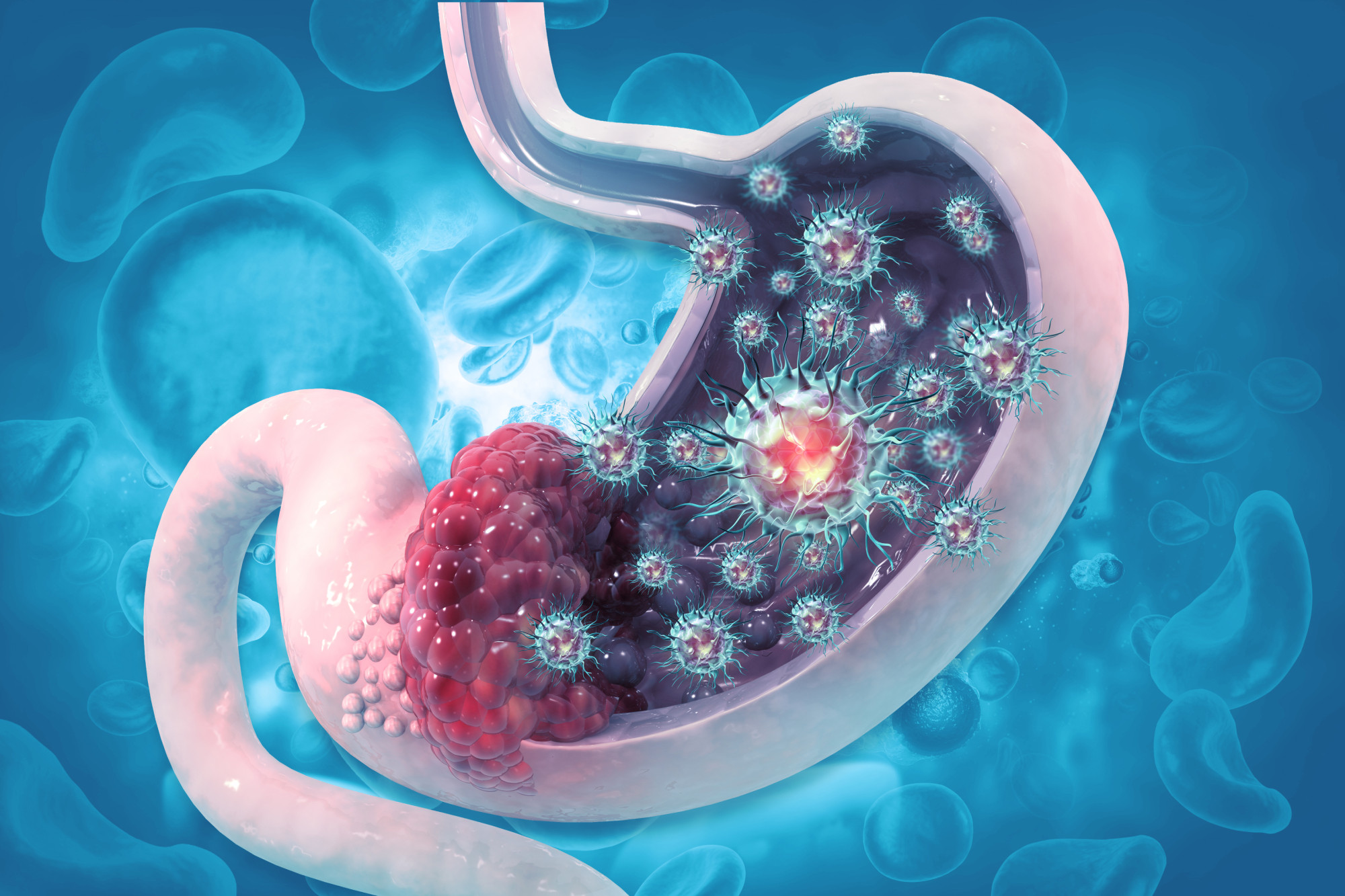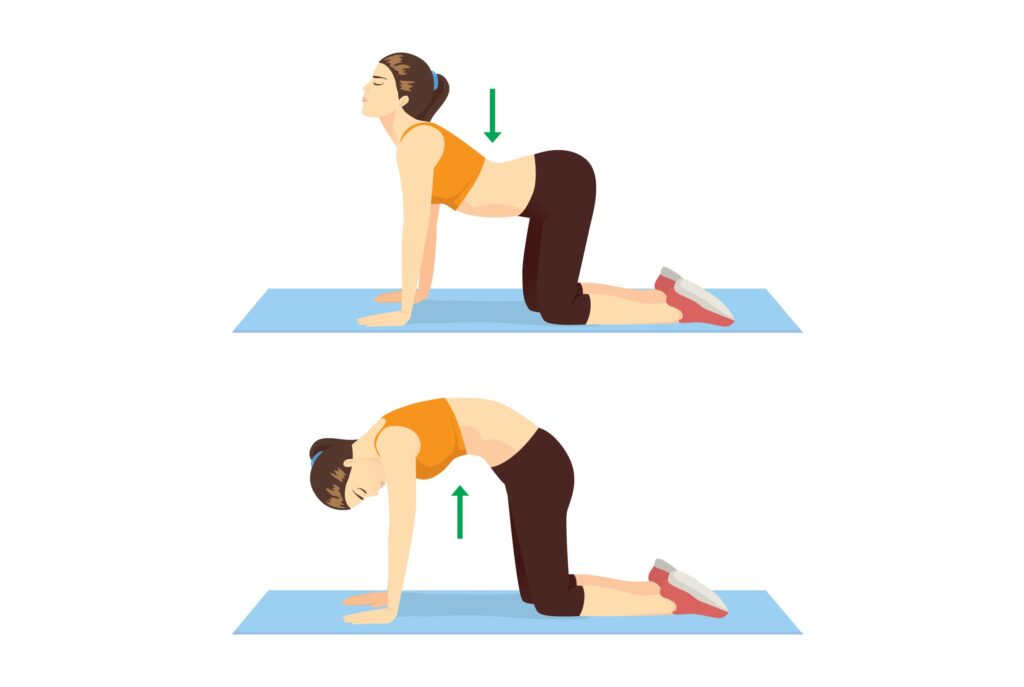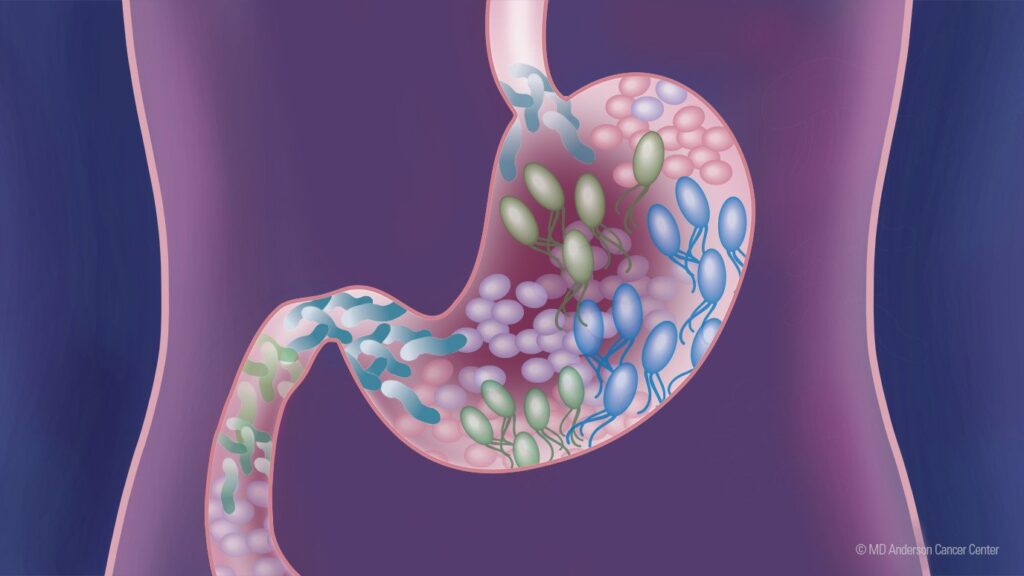Your gut health impacts your immune system, your mental health and your overall well-being.
When you have a healthy gut, your gastrointestinal tract has a good balance of gut bacteria and is able to properly digest and absorb nutrients.

But when there is an imbalance in your gut bacteria, it may trigger unwanted gastrointestinal symptoms, like diarrhea, as well as mental health issues.
A diverse diet rich in fruits, vegetables, and whole grains supports a healthy gut ecosystem, while inflammation can delay recovery. A plant-based, wholefood diet is beneficial for long-term gut health and overall well-being.
Key Takeaways
- Including fiber-rich foods like vegetables, fruits, and animal protein is crucial for restoring gut health and promoting optimal digestion.
- Bananas, garlic, onions, and asparagus are all examples of prebiotic foods that can help alleviate leaky gut symptoms by feeding the good bacteria in your digestive tract.
- Fermented foods like kimchi and kefir are rich sources of probiotics that can help restore the balance of gut bacteria and improve overall digestion.
- It is essential to avoid artificial sweeteners, processed animal products, unhealthy fats, and NSAIDs to maintain a healthy gut and prevent or heal leaky gut syndrome.
The best diet for gut health

Most of us will experience a gut-related issue at some point, but there are several ways to avoid discomfort.
A survey of 73,000 adults in 33 countries found that over 40% had gastrointestinal disorders like irritable bowel syndrome or constipation. Agnesa Simcic, founder of Wholefood Mama, emphasizes the importance of addressing abdominal discomfort, as it impacts immune function, detoxification, hormone production, and energy levels.
Here’s how to improve gut health:
Fibre: High-fibre diets reduce inflammation. Fibre from whole grains, oats, apples, and beans is fermented by gut bacteria to produce anti-inflammatory short-chain fatty acids. Most people don’t meet the daily fibre target.
Fasting: Intermittent fasting can increase gut microbe diversity and improve blood sugar levels, insulin sensitivity, and mood.
Pre, Pro, and Postbiotics: Prebiotics feed probiotic bacteria, creating beneficial postbiotics like vitamins and anti-inflammatory compounds. Eat prebiotic-rich foods (grains, fruits, vegetables) and probiotic foods (sauerkraut, miso, yogurt).
Fermented Foods: Start meals with sauerkraut, kimchi, or pickled vegetables to stimulate digestion. Pineapple, mango, papaya, and kiwi contain digestive enzymes.
Sugar & Salt: Limit sugar and salt intake. Excessive sugar reduces microbiome diversity, and too much salt harms the microbiome’s anti-inflammatory functions.
Favour Plants: Plant-based proteins increase beneficial bacteria. A diverse diet of fruits, vegetables, whole grains, and legumes promotes a healthy microbiome.
Sleep: Lack of sleep affects digestion, stress, and hormone levels, impacting gut health.
Improving your diet and lifestyle can enhance your gut health and overall well-being.
How to treat gut inflammation
To treat gut inflammation, follow these tips from Anna Mitsios, nutritionist and founder of Edible Beauty Australia:
- Remove Triggers: Identify and eliminate foods that cause bloating, indigestion, or other gut issues. Common triggers include sugar, yeast, gluten, and dairy. Keep a food diary to pinpoint specific triggers.
- Add Variety: Vary your diet to nurture your gut microbiome. Rotate greens and vegetables daily, and include nuts, seeds, seaweed, and whole grains.
- Munch on Enzymes: Glutamine helps repair the gut lining. Natural enzymes like bromelain and papain in pineapple and papaya reduce inflammation and aid digestion.
- Stress Less: Manage stress to maintain key nutrients like zinc and vitamin C. Ensure adequate sleep for optimal healing.
- Herbs & Spices: Use chamomile, aloe vera, and slippery elm to reduce inflammation. Golden seal, garlic, and oregano can help eliminate yeast overgrowth.
How to treat bloating
A healthy digestive system benefits from both diet and movement. Gentle exercises, like yoga, can stimulate the colon and provide relief from digestive issues.
“Improving digestion helps with nutrient absorption, toxin removal, sleep quality, and hormone regulation,” says nutritionist and yoga teacher Agnesa Simcic. “Being free of bloating can also enhance mood and comfort.”
Yoga combines abdominal stretches and twists that massage the colon, promoting gentle movement through the digestive tract. Consistent practice maintains digestive flow and improves overall health.
Agnesa also suggests incorporating light movement after meals, such as walking or light household chores, similar to the Italian tradition of a post-dinner walk.
Here are six favorite exercises to improve digestive health:
- Seated Side Bend:
- How to: Sit with legs crossed, left hand on the floor, right arm overhead, and lean to the left. Repeat on the other side.
- Benefit: Stimulates stomach, gall bladder, pancreas, spleen, and liver.

- Knees to Chest:
- How to: Lie on your back, bring knees to chest, and hold for 30 seconds.
- Benefit: Relieves gas and bloating.
:max_bytes(150000):strip_icc()/GettyImages-668296954-5e96103d62e04a08a0cfaaa039c2bf26.jpg)
- Bow Pose:
- How to: Lie on your belly, grab ankles, lift chest and thighs while inhaling, then release.
- Benefit: Increases bowel movements and reduces congestion.

- Cat-Cow:
- How to: On all fours, inhale while arching the back and lifting the head (cow pose), then exhale while rounding the back and tucking the chin (cat pose). Repeat.
- Benefit: Massages lower digestive organs.

Incorporate these exercises into your routine for improved digestive health and overall well-being.


